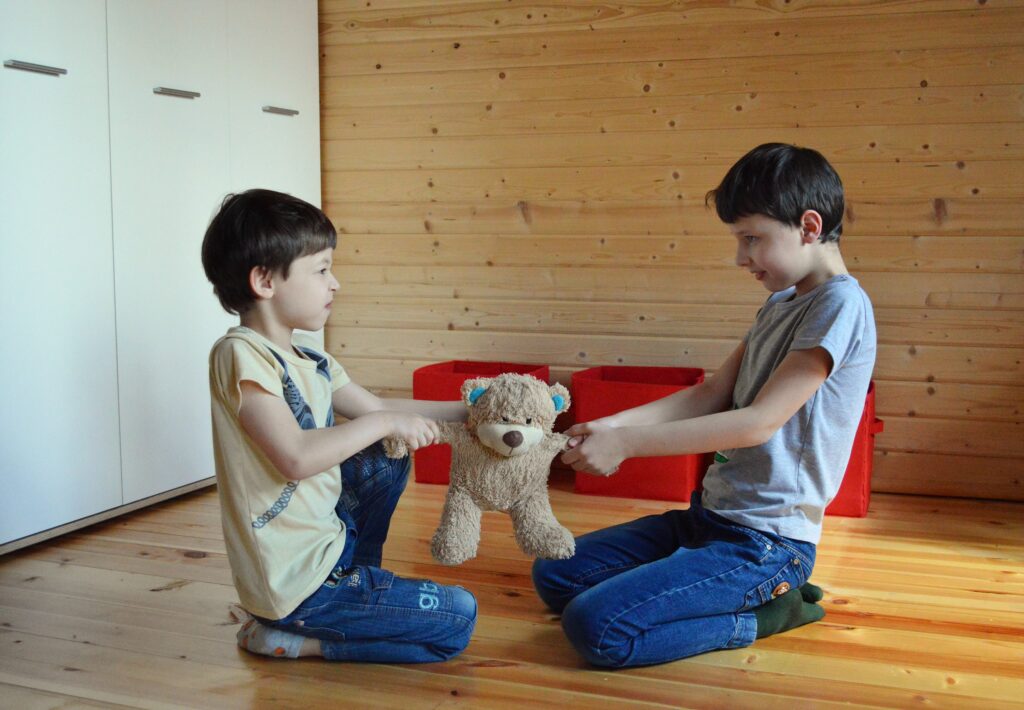
Introduction
As parents, it can be disheartening and overwhelming when our children engage in constant arguments and squabbles. Sibling rivalry is a common and natural part of growing up, but it’s crucial for us to cultivate an environment that promotes cooperation and sibling bonds. In this blog post, we will explore effective strategies to help you navigate the challenges of parenting when your children are constantly fighting with each other. By implementing these techniques, you can foster harmony and nurture positive relationships among your kids.
Section 1: Understanding the Root Causes of Sibling Conflict
Sibling conflicts often stem from various underlying factors. Age differences play a significant role in sibling dynamics. Younger children may seek attention or imitate their older siblings, while older siblings might feel burdened by the responsibility of looking after their younger counterparts. Personality clashes can arise when siblings have different temperaments, interests, or communication styles. Recognizing and acknowledging these differences can help parents approach conflict resolution with empathy and understanding. Additionally, feelings of jealousy or perceived favoritism can fuel rivalry among siblings. Parents must avoid showing favoritism and ensure each child feels equally loved and valued.
Section 2: Creating a Supportive Environment
Establishing clear rules and boundaries is vital to creating a supportive environment for siblings. Clear expectations regarding behavior, sharing, and personal space help children understand limits and reduce conflict. By involving children in the rule-setting process, parents can foster a sense of ownership and responsibility. Encouraging open communication and active listening provides a platform for siblings to express their feelings and concerns. Parents should create a safe space where each child feels heard and valued, fostering an atmosphere of mutual respect and empathy. Furthermore, it is crucial to balance individuality and shared experiences. Recognize and celebrate each child’s unique qualities, interests, and accomplishments, while also encouraging shared activities that promote cooperation and bonding, such as family outings or game nights.
Section 3: Encouraging Cooperation and Conflict Resolution
Teaching problem-solving skills and empathy equips children with essential tools to navigate conflicts. Parents can encourage their children to express their feelings calmly and listen to each other’s perspectives. This can be facilitated through family meetings or designated “talking time” where each child can voice their concerns without interruptions. By actively involving children in finding solutions, parents empower them to develop problem-solving and negotiation skills. Parents can also teach empathy by encouraging siblings to consider each other’s feelings and perspectives. This can be accomplished through activities such as role-playing or discussing hypothetical scenarios. Regularly engaging in family bonding activities, such as cooking together or working on a project as a team, promotes cooperation, strengthens bonds, and provides opportunities for siblings to collaborate and support each other.
Section 4: Balancing Fairness and Individual Attention
Avoiding comparisons and favoritism is crucial in maintaining healthy sibling relationships. Recognize that each child has their own unique strengths and challenges. Celebrate their individual accomplishments and avoid pitting them against each other. Emphasize that each child’s progress and growth should be valued for their own merit. To foster a sense of fairness, allocate quality one-on-one time with each child. Engaging in activities they enjoy can strengthen the parent-child bond and reinforce their sense of value. During this dedicated time, parents can actively listen to their child, providing undivided attention and creating an environment where they feel safe to express their thoughts and emotions.
Section 5: Setting a Positive Example
Parents play a significant role in shaping sibling relationships through their own behavior. It is important for parents to model respectful and peaceful communication when conflicts arise. Instead of engaging in arguments or conflicts in front of children, parents should aim to resolve their own disagreements privately, demonstrating effective conflict resolution skills. By doing so, parents show their children that conflicts can be resolved calmly and respectfully. Encourage empathy by discussing the feelings and perspectives of others. Highlight the importance of understanding and compassion towards siblings and others. Parents can also actively involve their children in acts of kindness and generosity, fostering a culture of empathy and cooperation within the family.
Section 6: Implementing Effective Discipline Strategies
When addressing sibling conflicts, it’s important to implement discipline strategies that promote growth and learning. Natural consequences allow children to experience the direct outcome of their actions. For instance, if a child refuses to share a toy, they may lose the opportunity to play with it altogether. This approach encourages responsibility and empathy as children learn that their actions have consequences affecting themselves and others. Logical consequences are tailored to the situation and help children understand the impact of their behavior on others. For instance, if a child damages their sibling’s belongings, they may need to repair or replace the item using their own resources or contribute to chores that benefit their sibling. Encouraging sincere apologies and forgiveness helps siblings take responsibility for their actions and reconcile with one another. Parents should create an environment where apologies are genuine and forgiveness is encouraged, fostering a sense of understanding and cooperation.
Section 7: Seeking Professional Help if Needed
While most sibling conflicts can be resolved with effective parenting strategies, there may be instances where conflicts escalate to an unhealthy level. If sibling rivalry persists or becomes detrimental to the well-being of your children, consider seeking professional help. Family counseling or therapy can provide guidance and support, offering specialized techniques to address underlying issues and facilitate positive sibling dynamics. A trained professional can help parents navigate complex dynamics, providing tools and strategies tailored to the unique needs of the family. Professional intervention can help parents identify and address any deep-rooted issues, ensuring the emotional and social growth of their children and fostering healthier sibling relationships.
Conclusion
Parenting children who are constantly fighting with each other can be challenging, but it’s important to remember that sibling conflicts can also be valuable opportunities for growth and development. By understanding the underlying causes of rivalry, creating a supportive environment, encouraging cooperation and conflict resolution, balancing fairness, setting a positive example, implementing effective discipline strategies, and seeking professional help if needed, you can foster a harmonious and loving sibling relationship. Remember, with patience, consistency, and a whole lot of love, you can guide your children towards building lifelong bonds with each other.
